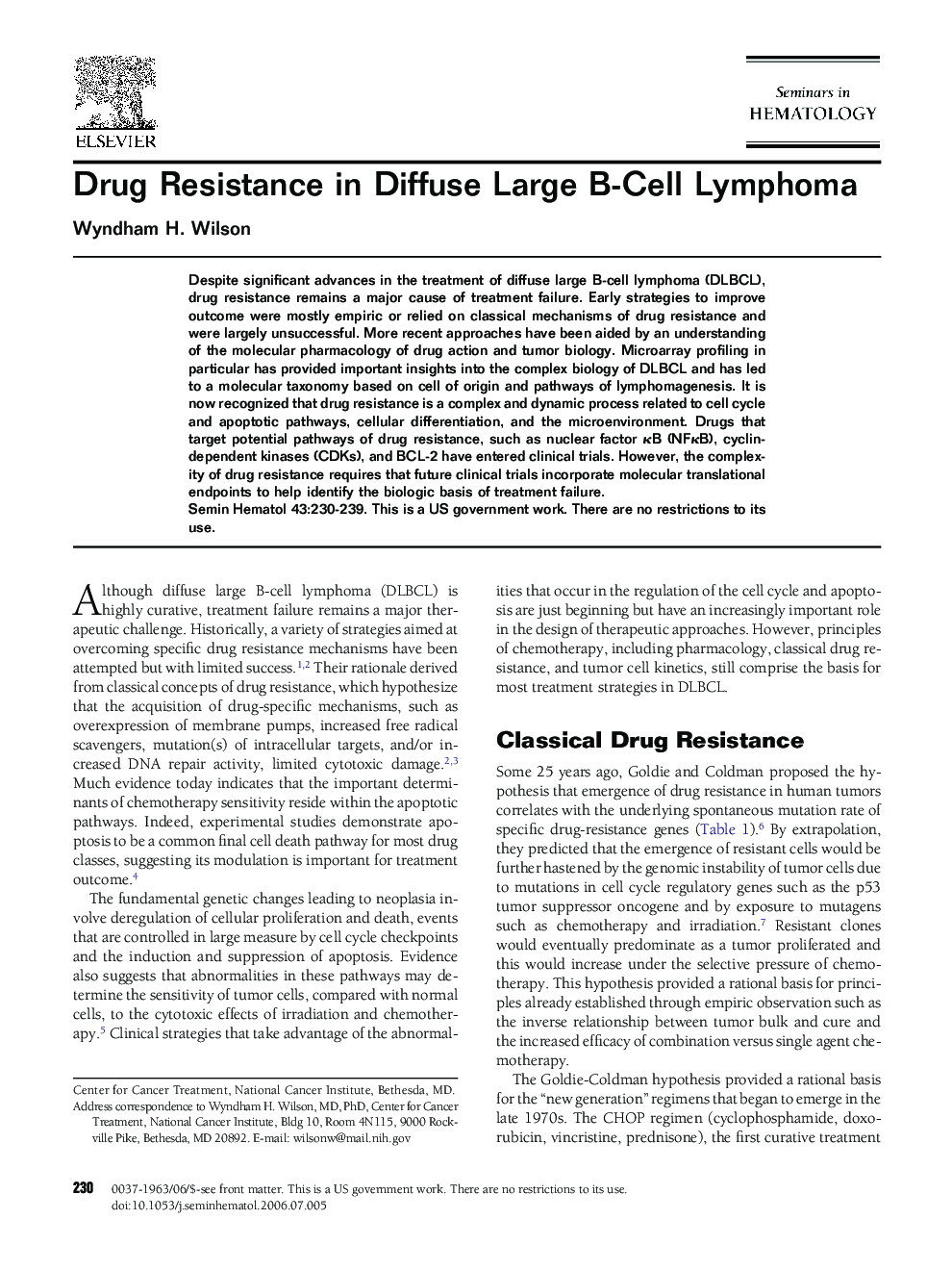| Article ID | Journal | Published Year | Pages | File Type |
|---|---|---|---|---|
| 3334128 | Seminars in Hematology | 2006 | 10 Pages |
Despite significant advances in the treatment of diffuse large B-cell lymphoma (DLBCL), drug resistance remains a major cause of treatment failure. Early strategies to improve outcome were mostly empiric or relied on classical mechanisms of drug resistance and were largely unsuccessful. More recent approaches have been aided by an understanding of the molecular pharmacology of drug action and tumor biology. Microarray profiling in particular has provided important insights into the complex biology of DLBCL and has led to a molecular taxonomy based on cell of origin and pathways of lymphomagenesis. It is now recognized that drug resistance is a complex and dynamic process related to cell cycle and apoptotic pathways, cellular differentiation, and the microenvironment. Drugs that target potential pathways of drug resistance, such as nuclear factor κB (NFκB), cyclin-dependent kinases (CDKs), and BCL-2 have entered clinical trials. However, the complexity of drug resistance requires that future clinical trials incorporate molecular translational endpoints to help identify the biologic basis of treatment failure.
